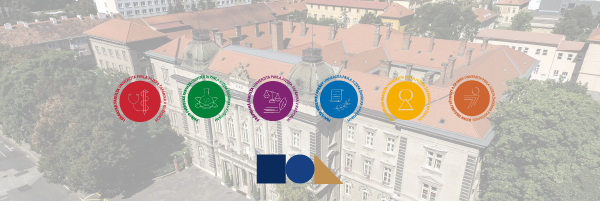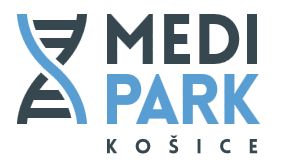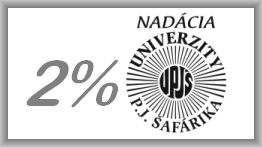Workplace: Faculty of Law, Department of Labour Law and Social and Security Law
Topic: Artificial Intelligence in Eployment Relations
Annotation: Artificial intelligence is becoming an integral part of everyday life, including in the field of labour relations. The objective of the postdoctoral research is to conduct a thorough, detailed, and comparative analysis of the impact of artificial intelligence on the existing legal framework (both at the national and global levels), and to assess the need for modification of standard legal institutes within labour law. Equally, the research activity should focus on examining the implications of integrating artificial intelligence into the labour law environment in correlation with the potential threat to employee protection, particularly (though not exclusively) with regard to compliance with the principle of equal treatment.
Host professor: prof. JUDr. Peter Molnár, PhD.
Email: peter.molnar@upjs.sk
Supervisor: assist. prof. Marcel Dolobáč, PhD.
Email: marcel.dolobac@upjs.sk
Professional requirements/criteria for the candidate:
- completed second-level degree in Law
- completed third-level degree in Law/Labour Law or a related field
- language skills – English at a minimum level of C1
- scientific and publication activity in the field of Labour Law
Workplace: Faculty of Law, Department of Constitutional and Administrative Law
Topic: Judicial power and constitutional principles of justice
Annotation: The principles of justice find their content expression in the Constitution of the Slovak Republic either at a general level, as basic principles on which the judicial power is based. The second aspect is their specific expression in the form of specific procedural principles. The importance of constitutional principles is increasing, as they represent one of the basic criteria within the decision-making processes in the judiciary. The judiciary continues to be a fundamental part of the rule of law, adequate interpretation and application of constitutional principles is a prerequisite for its correct application. The research is focused both on the analysis of the judicial power in the Slovak Republic, as well as on the mapping and critical analysis of the constitutional principles of justice, including their impact on citizens’ rights in order to improve application practice.
Host professor: prof. JUDr. Gabriela Dobrovičová, CSc.
Email: gabriela.dobrovicova@upjs.sk
Supervisor: doc. JUDr. Alena Krunková, PhD.
Email: alena.krunkova@upjs.sk
Professional requirements/criteria for the candidate: third-degree university education in the field of law
Workplace: Faculty of Law, Department of Constitutional Law and Administrative Law
Topic: Possibilities of using artificial intelligence in the field of prevention and repression of environmental offences
Annotation: The scale, scope and complexity of today’s technological advances undoubtedly affect all areas of our daily lives. The field of environmental protection is no exception, where the development of information and communication tools (especially artificial intelligence) is making a significant contribution to achieving long-term environmental sustainability. However, in addition to eco-innovation, this area also raises the question of the possibility of using artificial intelligence in decision-making processes on environmental offences. In connection with the above, the research within the postdoctoral fellowship should be limited to the examination of legal possibilities of using artificial intelligence in decision-making processes in the field of prevention and repression of environmental offences, while using a comparison with other countries, taking into account the legal requirements for enabling such automation of decision-making processes in public administration in the Slovak Republic in terms of guaranteeing the principles of legality (including the protection of fundamental rights and freedoms), as well as defining the obstacles preventing the use of this tool and the formulation of appropriate legal solutions minimizing, respectively, the use of this tool in the field of prevention and repression of environmental violations. The aim of the proposal is to define and define the legal basis for the application of the legal remedies, in particular those which would eliminate the impact of these obstacles.
Host professor: prof. JUDr. Sergej Romža, PhD.
Email: sergej.romza@upjs.sk
Supervisor: doc. JUDr. Radomír Jakab, PhD.
Email: radomir.jakab@upjs.sk
Professional requirements/criteria for the candidate:
- higher education degree III in law
- publications related to the topic, including at least 2 publications in WoS/Scopus (acceptance is sufficient)
- recognition of the results of research activities by an external institution or university authorities
- active participation in scientific conferences
- experience in solving research projects
- contribution to the development of the university by participating in the development activities of the university/faculty or by participating in university/faculty bodies
- active knowledge of at least 1 world language
Workplace: Faculty of Law, Department of History of State and Law
Topic: Development and parallels of restorative justice and their legacy for modern criminal law
Annotation: Restorative justice is a process that aims to reduce injustice. It aims to strengthen justice and reduce crime. In order to achieve this, it seeks to bring together all the parties involved – that is, the victim who has been harmed, the offender who has caused the harm in question, and the community in which the harm has been caused. Restorative justice in its modern understanding and meaning, however, did not appear on the scene until the end of the last century. However, the various ideological concepts, principles, elements or starting points of restorative justice have been present in our past since the earliest times and can be seen in the development of (criminal) law and its institutes. The aim of the research is a systematic analysis of the historical-legal foundations and individual elements of restorative justice in the past – with a subsequent identification of their (possible) legacy in the criminal policy of the state and modern criminal law. Thus, the research will contribute to the understanding of the investigated historical issue of the development of restorative justice and, in a broader sense, of contemporary justice and criminal policy – since the development of individual institutions (and more so of public policies) is one of the determinants that also influence their future development.
Host professor: prof. JUDr. Gabriela Dobrovičová, CSc.
Email: gabriela.dobrovicova@upjs.sk
Supervisor: doc. JUDr. Miroslav Fico, PhD.
Email: miroslav.fico@upjs.sk
Professional requirements/criteria for the candidate:
- achieved PhD. degree of university study in the field of law
- publishing activities registered in professional databases WoS, SCOPUS and ERIH+
- publishing activities in domestic and foreign scientific and professional journals and proceedings not registered in prestigious databases
- experience in solving scientific research projects
- completing study stays
- teaching practice
- active knowledge of at least 1 world language
Workplace: Faculty of Public Administration, Department of Public Policy and Theory of Public Administration
Topic: Disinformation and public policy
Annotation: Digital transformation brings several positives for the entire society, especially in the form of increased quality, efficiency, transparency, openness of provided public services. Digital spreading of content is also associated with current threats in the form of disinformation. Disinformation aimed at spreading false content and influencing the process of public policy making results in higher requirements for the resilience of public bodies and the entire public administration. The postdoc research will be focused on the analysis of the origins and reasons for the emergence of disinformation, identifying the reasons why the population trusts disinformation, proposing options for dealing with disinformation in connection with public policy making at the central and local level. The topic contributes to a broader international scientific elaboration of the topics of public policy, disinformation, fake news, resilience of public administration and others.
Host professor: doc. Ing. Silvia Ručinská, PhD., university professor
Email: silvia.rucinska@upjs.sk
Supervisor: doc. Ing. Silvia Ručinská, PhD., university professor
Email: silvia.rucinska@upjs.sk
Professional requirements/criteria for the candidate:
- PhD. in relevant discipline
- international publications focused on the post-doc topic published in scientific journals
- ability to conduct autonomous quality research at a post-doctoral level
- spoken and written English language
- previous experience with scientific projects in the position of principal investigator or participant is welcome
Workplace: Faculty of Arts, Department of Psychology
Topic: Attitudes to uncertainty and work outcomes – burnout and engagement
Annotation: Previous research has highlighted the role of attitudes towards uncertainty in a wide range of work outcomes, including, in addition to objective outcomes, mental health, with two variables indicative of work experience – work engagement and burnout symptoms – being no exceptions. However, the results to date are based on the use of quantitative methods, which, while allowing for the identification of smaller effects, may neglect important details regarding relationship dynamics or individual differences. This topic aims to help fill this gap by combining quantitative and qualitative approaches to detect the complex and arguably reciprocal relationship between attitudes towards uncertainty on the one hand and work engagement and burnout symptoms on the other. In addition to classical questionnaire methods, an analysis of workers’ statements will be used to track cognitive, motivational and emotional aspects of work, in addition to the variables mentioned above, where it will be possible to examine the temporal sequence of the onset of overload and the possible subsequent burnout syndrome, taking these aspects into account.
Host professor: prof. PhDr. Margita Mesárošová, CSc.
Email: margita.mesarosova@upjs.sk
Supervisor: assoc. prof. Mgr. Ing. Jozef Bavoľár, PhD.
Email: jozef.bavolar@upjs.sk
Professional requirements/criteria for the candidate:
Completed third-level university education in the field of social psychology and work psychology, or psychology. Publications in the field of psychology.
Workplace: Faculty of Arts, Department of Slovak Studies, Slavonic Philologies, and Communication
Topic: Trauma and its artistic grasp in contemporary Slovak prose
Annotation: Mapping authorial strategies and narrative procedures when modelling the temeof trauma; taking into account axiological criteria when considering the originality of individual authorial poetics.
Host professor: doc. Marián Milčák, PhD.
Email: marian.milcak@upjs.sk
Supervisor: prof. PhDr. Marián Andričík, PhD.
Email: marian.andricik@upjs.sk
Professional requirements/criteria for the candidate:
- completed third level of university
- adequate publication activity in the field
Workplace: Faculty of Arts, Department of British and American Studies
Topic: Food in cultural diplomacy and intercultural communication
Annotation: The research aims to investigate the phenomenon of food and its function as a means and tool of cultural diplomacy and intercultural communication. It focuses on the discourse of media communication of both original and new media in a comparative aspect in the contexts of Anglophone cultures and cultures of the researcher’s choice. The theoretical foundations are in postmillennial paradigms, and the methodological starting points are in discourse analysis, semiotic analysis, content analysis, and others suitable for the given type of primary material.
Host professor: prof. PaedDr. Lívia Körtvélyessy PhD.
Email: livia.kortvelyessy@upjs.sk
Supervisor: Dr. h. c. prof. Mgr. Slávka Tomaščíková, PhD.
Email: slavka.tomascikova@upjs.sk
Professional requirements/criteria for the candidate:
- completed doctoral studies in philology, cultural studies, food studies
- knowledge of the English language at level C1















